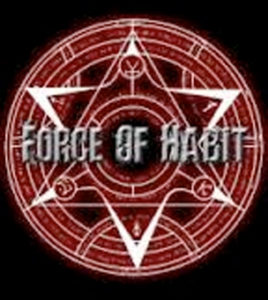 “How use doth breed a habit in a man!”
“How use doth breed a habit in a man!”
(Two Gentlemen from Verona, act 5, sc. 4)
Comments. In this entry’s instance the “use” refers to voting in the presidential elections to sustain two beliefs (through habit), that have proven false and documentably so. One is that voting is the essence of democracy. It would or it can be if the voter had any say in the selection of the candidates – but he has none. The belief stems from the habit of unconsciously comparing the voting in presidential elections to the voting during, say, the election of a club member to some kind of office within the club. Or during a resolution in favor of some club initiative.
The force of habit blinds millions to the realization that democracy (in the sense of enacting the will of those who vote) is only possible when the number of voters is small and when each voter has reasonable access to those for whom he is expected to vote, as well as some insight into their motives.
It has been shown thoroughly and extensively that the candidates are the result of internal selections whose rules are secret to the voters – as secret as all really important decisions. And that the candidates are chosen to ensure that they faithfully pursue the interests of the power elite groups who put them on the ballot. If there were any doubt, why is it that both parties have made it essentially impossible for a third party candidate to exist? Evidence for this state of affair is massive – suffice to mention, for those who wish to read, Domhoff’s book “Who Rules America?”. But habit trumps evidence.
The other belief is that there is a difference between the two parties. That there is none has been said, demonstrated and repeated by many. The charade of the debates – who is the winner and who the loser – are pantomimes to show what does not exist.
It is impossible for Obama not to win – it has been pre-ordained. And the “fear” that Romney should win is a well staged PR program. Both candidates agree on the opening up of public lands to energy corporations, corporate tax cuts, more wars, the “reform” (i.e., privatization) of public education, and other issues. The “fear” of a republican victory is actually an incentive and an excuse for the “democrats” to carry our “republican” regressive measures to reduce the chances of a republican victory.
Use does indeed breed a habit in a man, including the sheepish illusion that his vote makes a difference.
If you like this website why not subscribe (see last menu item to the right)? You will get automatically any new blog as well as any other information and novelty that will be forthcoming. And check the Shakespeare book too.
In the play. Valentine learns to accept his exile in the forest, near Milan, after having been betrayed by his allegedly best friend Proteus. This was of course before “progress” wild modernization had obliterated any presence of forests from practically all Italy.
Image source http://www.facebook.com/forceofhabitrock
